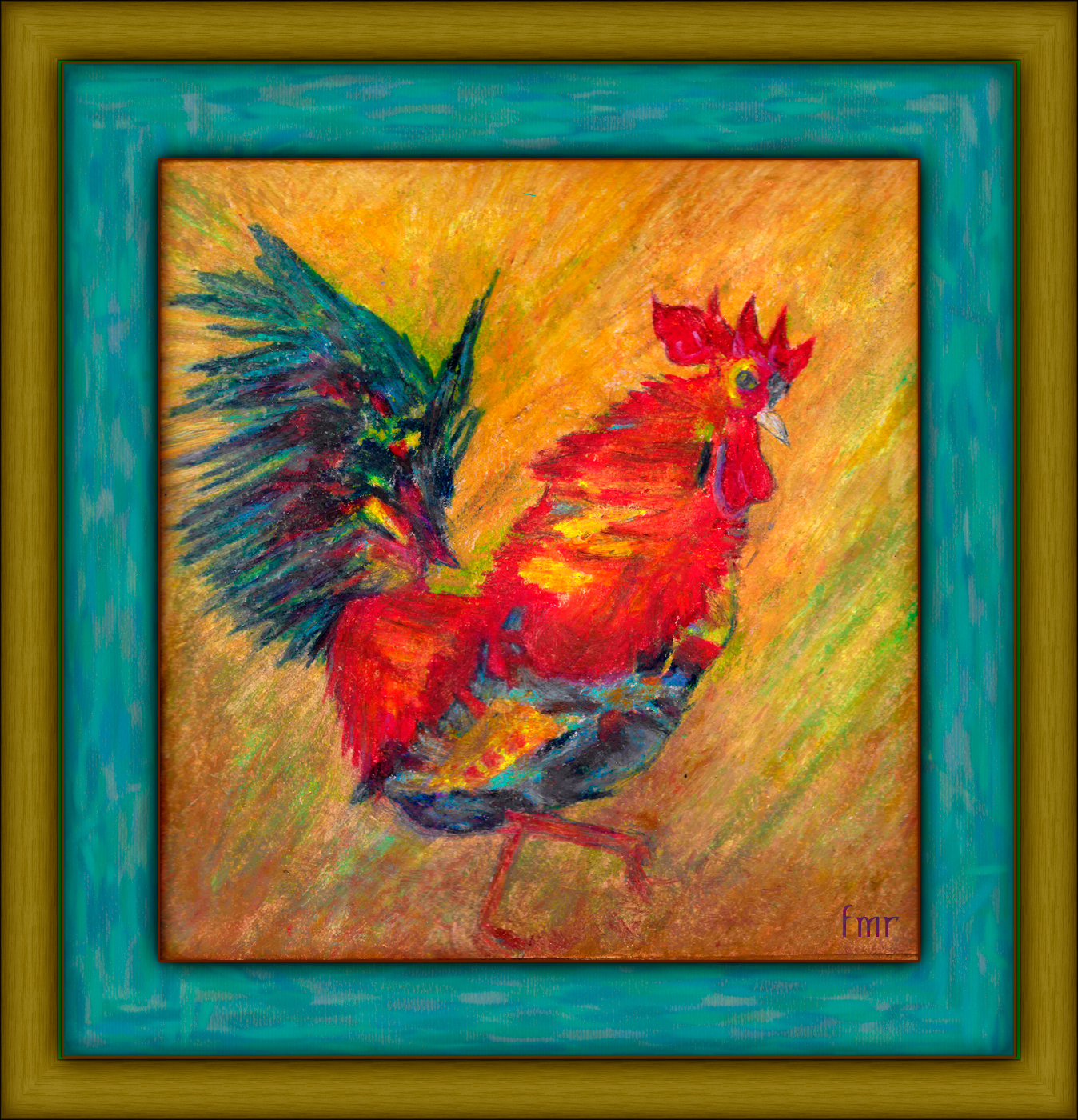Rooster
Rooster
Rooster by Saltwater

Description
Description
General Info
General Info
Ratings
Category Furry » Animal art (Non-anthro) » Birds
Date Submitted
Views 860
Favorites... 2
Vote Score 5
Category Furry » Animal art (Non-anthro) » Birds
Date Submitted
Views 860
Favorites... 2
Vote Score 5
Comments
12
Media Oil pastels
Time Taken
Reference
Media Oil pastels
Time Taken
Reference
Comments
You are not authorized to comment here. Your must be registered and logged in to comment
alitta2 on September 15, 2016, 1:57:59 PM
alitta2 on
Saltwater on September 18, 2016, 2:25:21 PM
Saltwater on
TeeJay87 on September 12, 2016, 12:58:29 AM
TeeJay87 on
Btw, I've just made short research about fowls:
- it seems there's plenty of chicken breeds https://en.wikipedia.org/wiki/Category:Chicken_breeds , including one supposed-to-be-Polish https://en.wikipedia.org/wiki/Polish_chicken despite I've never seen those birds in the area I live in;
- what's even more hilarious is that two famous cartoon roosters - Foghorn from Looney Tunes https://en.wikipedia.org/wiki/Foghorn_Leghorn and Roy from Garfield and Friends http://garfield.wikia.com/wiki/Roy_Rooster belong to breed developed in Italy https://en.wikipedia.org/wiki/Leghorn_chicken . It's visible when you compare those two birdies with Italian Army captain played by Gavin Richards and Roger Kitter in "Allo, allo !" https://en.wikipedia.org/wiki/Captain_Alberto_Bertorelli - they all have similar attitude ! xD
Saltwater on September 12, 2016, 6:19:06 AM
Saltwater on
(And I always try to find subjects that fit the art materials that I am using.)
The "Silver Laced Polish cock" looks like an african sorcerer! LOL
I prefer the Polish "Green-legged Partridge" from Felin near Lublin which look totally gorgeous! ;-)
TeeJay87 on September 12, 2016, 1:08:39 PM
TeeJay87 on
Saltwater on September 13, 2016, 11:20:07 PM
Saltwater on
TeeJay87 on September 14, 2016, 2:07:16 AM
TeeJay87 on
Eastern parts of Poland are mostly composed of rather small farms managed by families, where there is barely space to build and maintain "poultry factory". The latter ones are more common on the Western bank of Vistula river, especially in Silesia and former Grand Duchy of Posen, since Prussian kings/German emperors from Hohenzollern dynasty knew more about economy than Austrian emperors from Habsburg dynasty and Russian czars from Romanov house did. As a result, Pruscos left us solid industrial network after Partitions period (1795-1918), while Austrians limited themselves to limited autonomy from the times of Franz Joseph I (granted in 1868, expired in 1918) .
Of course Russians czars and their thralls also left much in the part of Poland they robbed between 1772 - 1795 period and kept till 1918 - reputation of Russians as bloodthirsty occupants without slightest traces of remorse. Bolshocks only made this sentiment much deeper, and Putin isn't even trying to heal those wounds.
Saltwater on September 14, 2016, 3:48:33 AM
Saltwater on
It is awful for the animals, and the quality of the final product is very bad,
not wholesome and healthy, and sometimes not very safe...
But the production cost is much lower, of course.
The chickens raised in the open air are happy and healthy during their little life.
And the consumer gets a product which is very tasty, savoury and healthy too.
But such extensive farming needs a lot of free space, time and care to breed these chickens in good conditions.
These conditions are more and more difficult to meet.
It can be found in traditional areas, small farms run by families, as you said.
In North-Western Europe and Northern America, the small producers and small farmers get very little money for their hard work.
And at the other end, the consumer pays a lot of money for the final product.
The standard of life and the quality of life in general, have been constantly and steadily declining in our Western Nations, (thanks to socialism!).
Less and less people can afford products of quality.
And since Offer relies on Demand...
(it is a very basic principle in Economics)
TeeJay87 on September 15, 2016, 10:26:42 AM
TeeJay87 on
1) as you pointed out, quality of products and animals suffer badly on this cost reduction;
2) smaller farmers can't challenge on equal terms those "producers" due to their lack of power;
3) last but not least, this abuse of farm animals reminds me (and many people) abuse of workforce in 19th century, which lead to development of toxic ideologies such as socialism and its derivatives. Heck, it's not just an assumption - most of animal rights activists I've seen and heard about do manifest their leftist sympathies.
Here, in Poland, situation looks a bit differently - products from "food factories" are mostly popular in Warsaw and other cities with population exceeding 500 thousand citizens, while inhabitants of lesser settlements firmly support local farmers from their neighbourhoods. On the Eastern bank of Vistula River, people buy eggs, meat, vegetables and regional products directly from farmers in markets (every district of Lublin has at least one regularly held market, mostly on Saturdays). We treat supermarkets and similar shopping facilities as auxiliary source of supplies, used to acquire stuff you can't obtain from farmers or bakeries.
Falconlobo on September 12, 2016, 7:44:18 AM
Falconlobo on
Saltwater on September 14, 2016, 3:54:52 AM
Saltwater on
Falconlobo on September 14, 2016, 10:03:50 AM
Falconlobo on


